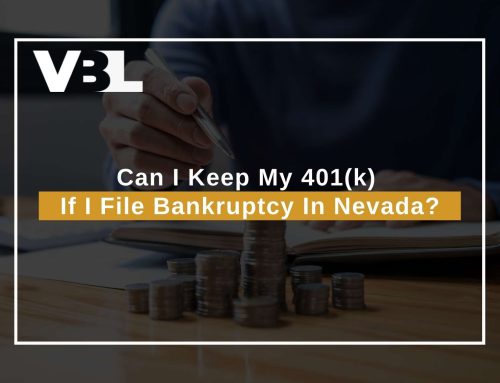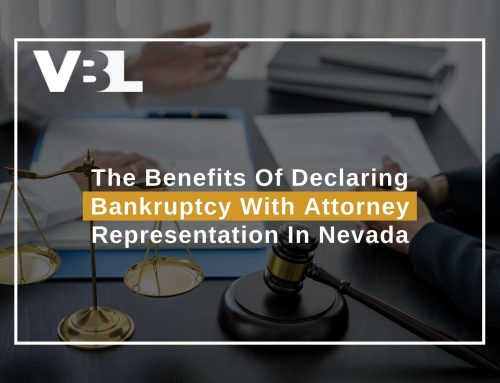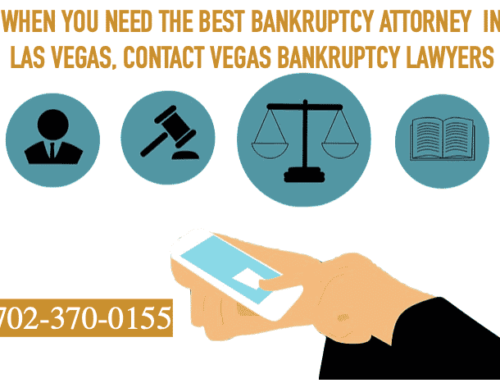Can I Be Forced To Pay a Family Member’s Credit Card Debt?
Our Nevada Bankruptcy Lawyers Discuss What To Do When a Loved One’s Creditor Is Coming After You
Debt collectors are known for being creative, and sometimes unscrupulous, in the methods they use to obtain payment to satisfy debts. The Federal Trade Commission enforces the Fair Debt Collection Practices Act, which restricts what creditors can do and say while attempting to collect a debt. So if a creditor contacts you expecting you to pay a family member’s credit card debt, you may be wondering whether you could be liable. In most cases, you can’t be held responsible for a family member’s debts- but there are a few exceptions.

Authorized Account User
If you have a loved one with poor credit, you may have considered adding them as an authorized user to one or more of your credit card accounts, if you haven’t already. This can be useful if someone’s credit has been damaged by a bankruptcy, wage garnishment, repossession, etc. Simply adding them to the account without giving them a card is a simple way to raise their available revolving balance, and in turn increase their credit score. But if they actually are provided with a card associated with your account, they could run up a balance that you would end up having to pay. You should regularly check your credit accounts if you do decide to let your family member have access to a card. That way, you can notice if your loved one is using the card excessively before your balance becomes out of control.
Debt Inheritance
You could also be concerned about whether your parents and other relatives can pass down debts to you when they pass away, just as they would with their money and possessions. Fortunately, your parents and relatives can’t designate you as an heir for their debts. Your creditors will need to make a claim through probate if they want repayment for the decedent’s debts. You will only be required to pay in limited circumstances, such as if you had a joint account with the decedent. You could also be held liable for debts that your spouse incurred during your marriage. Contact our firm for your free debt evaluation for more information.
Divorce & Splitting Debts
In every divorce, one of the most important steps that must be completed is property division. Nevada is one of eleven states that uses community property, which means that both assets and debts acquired during the marriage will be split evenly in a divorce, unless the spouses agree to a different division. The spouses can also sign their own divorce settlement agreement that divides marital property- and sometimes separate property- in a way entirely different from a judge would rule due to community property laws. For example, one spouse could give the other spouse an item of separate property, or agree to pay more than their share of the marital debt, in order for that spouse to surrender their share to a community asset.
Nevada Is a Community Property State
Because Nevada is a community property state, almost all debt incurred during a marriage is community debt, even if the debt was incurred in one spouse’s name alone. But that doesn’t mean that your spouse can run up a mountain of credit card debt right before a spouse so that you can share it. This is known as marital waste, and you can be credited accordingly if you prove that your spouse is guilty of it during property division. Marital waste can be in the form of shopping sprees, drug and alcohol binges, vacations, gambling, restaurants, and gifts for an extramarital affair partner. If you believe you have been a victim of marital waste, you should contact a family law attorney in addition to Las Vegas bankruptcy lawyers.
Another issue to keep in mind when it comes to property division of credit card debts is what happens if the spouse who is supposed to pay files for bankruptcy. That would discharge the debt in their name alone, and creditors still can pursue a spouse for marital debt despite court orders assigning a bankrupt spouse the responsibility to pay it. The same goes for if one spouse files bankruptcy during the marriage- the debt will not be cleared in the non-filing spouse’s name. You should make sure you fully understand the impact bankruptcy (past or potential) can have before signing a divorce agreement.
Discharging a Family Member’s Debt With Bankruptcy
While you can’t file bankruptcy on behalf of a family member, bankruptcy may be able to help you if you have been held liable for a loved one’s debts. You may also need to deal with debts besides credit card debts assigned in a divorce or incurred by an authorized cardholder. For example, if you cosigned on a vehicle for a relative, but the vehicle was later repossessed, you could be pursued for any remaining balance on the loan. Repossession deficiencies and credit card debts are both unsecured debts, like personal loans, medical bills, and unpaid rent and utilities. Fortunately, these categories of unsecured debt are relatively simple to discharge in bankruptcy.
If your income falls below Nevada’s median income for your household size, or you can prove you don’t have sufficient disposable monthly income to pay your debts through the Means Test, you can use Chapter 7 bankruptcy to liquidate and discharge your unsecured debts. Once your petition is filed, you will be protected from your creditors by the Automatic Stay. This protection will last throughout your case unless it is discharged or one of your creditors files a successful Motion for Relief from the Automatic Stay. A Chapter 7 bankruptcy typically lasts about three to five months. After this relatively short period, your debts will be discharged and you can begin rebuilding your credit history.
If your income is too high to file Chapter 7 bankruptcy, you most likely qualify for Chapter 13 bankruptcy instead. This will reorganize your debts into a payment plan that lasts either three or five years. Depending on how much disposable monthly income you have available, your unsecured non-priority debts may be discharged with partial or no repayment. This type of bankruptcy also gives you the opportunity to catch up on late car and house payments, saving the asset from repossession. While it is always recommended filing bankruptcy with a Las Vegas bankruptcy attorney’s representation, it is almost impossible for a Chapter 13 case to be discharged without an attorney’s help.
Contact Our Nevada Debt Relief Attorneys
Are you looking for relief from debts incurred by a family member, or by yourself? Bankruptcy could be the answer you are looking for. It could be your opportunity to completely restart your financial situation and move forward with a clean slate. But one of the drawbacks of filing for bankruptcy is that it can be surprisingly expensive. That shouldn’t mean that you should have to sacrifice when it comes to finding a quality bankruptcy attorney that you can trust. Our Las Vegas bankruptcy team offers decades of experience with budget prices and payment plans designed to work with anyone’s budget- we even have payment plans starting as low as $0 down! Let your decision to file bankruptcy be an informed one- contact us or use our online form to request your free consultation today.

Las Vegas Bankruptcy Lawyers
LAS VEGAS
7251 W Lake Mead BLVD #300
Las Vegas, NV89128
Office: 702-879-2499
Email: [email protected]
HENDERSON
1489 W Warm Springs Rd. Ste 110
Henderson, NV 89014
Email: [email protected]
















